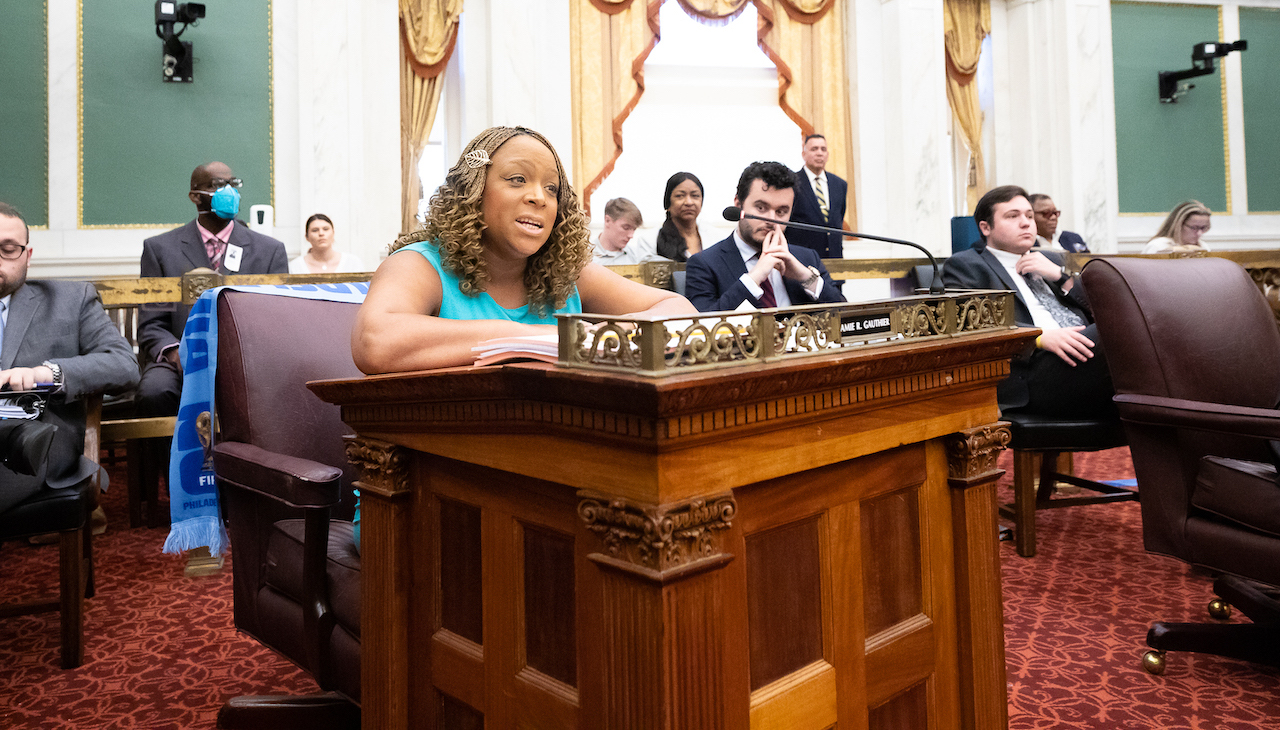
Philadelphia City Council approves creation of Reparations Task Force
Introduced by Councilmembers Kendra Brooks and Jamie Gauthier, the task force would study whether the city is able to pay reparations to its Black community.
Philadelphia City Council approved on Thursday, June 23, the creation of a Reparations Task Force that would study whether the city is able to pay reparations.
Introduced by Councilmembers Kendra Brooks and Jamie Gauthier last Thursday, June 15, the task force would develop proposals about reparations for Black Philadelphian descendants of enslaved Africans.
Time was of the essence to get the resolution approved, as Thursday was the final session until mid-September.
Sponsors of Resolution No. 23053200 include Councilmembers Katherine Gilmore Richardson, Sharon Vaughn, Mark Squilla, Cindy Bass, Michael Driscoll, Anthony Phillips, and Isaiah Thomas.
“It is crystal clear that many of the crises plaguing our city have their roots in American slavery,” Gauthier said after introducing the bill. “Reparations are not a handout, they’re what the descendants of enslaved Africans are owed and need.”
Gauthier and Brooks have said that issues such as gun violence and poverty in Black communities can be traced back to slavery and the discriminatory practices that came as a result at the end of slavery in the U.S. in 1865.
Even after emancipation, Black Americans faced racial obstacles to obtaining housing loans or leases under redlining policies, were offered a worse education through segregated public schools and jailed at roughly five times the rate of their white counterparts.
"Not only were reparations never made for American slavery, since then, the government has played a role in carrying out racist policies that have cheated Black people out of wealth and opportunity," Gauthier said last Friday. "And I don't believe we will be able to move forward in the way that we deserve until that sin is made up for. I think it's really important not only in terms of what happened in the past, but in terms of our ability to truly be a free and equitable society in the present."
Census data from 2016 was cited by the two Congressmembers, including that 30.8% of Black Philadelphians lived in poverty, which was more than double the 14.8% of white city residents who did.
RELATED CONTENT
Among the local organizations that helped push the initiative forward was the National Coalition of Blacks for Reparations in America (N’COBRA), a coalition of organizations and individuals organized to obtain reparations for the Black descendants of enslaved Africans.
N’COBRA told the Inquirer following the resolution’s introduction to Council that there are five key areas that reparations should address: peoplehood, education, health, the criminal justice system, and poverty.
They said reparations can come by way of direct payments, land, and economic development.
“This is a participatory process,” said Rashaun Williams, N’COBRA Philadelphia co-chair. “It’s imperative that our people make themselves heard and make themselves felt and roll their sleeves up and do the work, because it’s ours.”
Members of the task force could include historical researchers, local politicians and community leaders. Should the task force’s recommendations lead to actual legislation, Gauthier said she will introduce it, though the result could be "a partnership" with the mayor's office, she said.
Even with City Council’s approval, the bill still faces a lengthy road to actual reparations, with Gauthier telling Philly Voice she’d spend the Summer planning the logistics of the task force, with hopes of launching this upcoming Fall in time for the new legislative session.
No federal reparation programs are currently in place, however, individual cities and states have attempted similar measures in recent years including North Carolina, New Jersey, California, and Evanston, Illinois.











LEAVE A COMMENT: